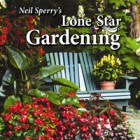Water Conservation Tip No. 8
Click here to see the latest on the releasing of Stage 3 Water Curtailments by the North Texas Municipal Water District.
Click here for more water conservation tips.
Mulches are the ideal garden product. They help in so many ways. Most veteran Texas gardeners have already discovered their benefits, but it never hurts to restate them.
Mulches conserve water. They reduce contact your bare garden soil has with drying air and wind.
Mulches reduce runoff. Water is more likely to soak into the soil since most mulches break up its flow.
Mulches reduce or prevent weed growth. It’s difficult for weed seeds to germinate through a 1- or 2-inch layer of mulch. Those that do are more easily cultivated out of the mulch than they would be out of native soil.
Mulches moderate soil temperature fluctuations much as insulation does for your home. It’s not that they "keep the ground from freezing" or "keep the soil cool in the summer." What they do is slow the pace at which the temperature changes and that’s better for your plants’ roots.
Mulches reduce splashing in heavy, driving rainstorms. That lessens staining on the sides of homes and it also lessens the chance of water mold funguses being splashed onto plant stems.
Above all the rest, mulches look good. They’re the finishing touch to any fine landscape.
Types of Mulches and Their Benefits
Organic mulches include shredded bark (pine or hardwood), compost, shredded tree leaves and even dried grass clippings. Organic mulches break down over time releasing nutrients and organic matter into the soil. Many can actually serve double duty as soil amendments as you prepare beds for new plantings. Organic mulches are generally the more natural-looking options.
Inorganic mulches include stone, gravel, lava rock, also plastic and other roll-type mulches. They are somewhat more permanent than organic mulches partly because they don’t float away in heavy rains. However, they also may not look as natural. Small, rounded stones may be the exception if they’re used in moderation and placed attractively within the landscape. Roll-type mulches are useful in row-crop vegetable gardens, also beneath shrubs. They’re especially functional at keeping bermudagrass from growing within spreading juniper groundcovers. They usually look best when they’re covered with a layer of organic mulch.
It’s always a great time to add mulches to your plantings!

